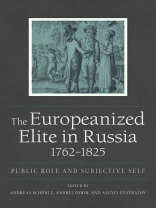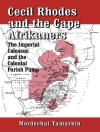This illuminating volume provides a new understanding of the subjective identity and public roles of Russia’s Europeanized elite between the years of 1762 and 1825. Through a series of rich case studies, the editors reconstruct the social group’s worldview, complex identities, conflicting loyalties, and evolving habits. The studies explore the institutions that shaped these nobles, their attitude to state service, the changing patterns of their family life, their emotional world, religious beliefs, and sense of time.
The creation of a Europeanized elite in Russia was a state-initiated project that aimed to overcome the presumed ‘backwardness’ of the country. The evolution of this social group in its relations to political authority provides insight into the fraught identity of a country developing on the geopolitical periphery of Europe. In contrast to postcolonial studies that explore the imposition of political, social, and cultural structures on colonized societies, this multidisciplinary volume explores the patterns of behavior and emotion that emerge from the processes of self-Europeanization. The Europeanized Elite in Russia, 1762–1825, will appeal to scholars and general readers interested in Russian history and culture, particularly in light of current political debates about globalization and widening social inequality in Europe.
Despre autor
Andreas Schönle is professor of Russian at Queen Mary University of London. Andrei Zorin is professor of Russian at the University of Oxford and a fellow of New College. Alexei Evstratov is a POINT fellow at the Dahlem Humanities Center (Freie Universität Berlin).












